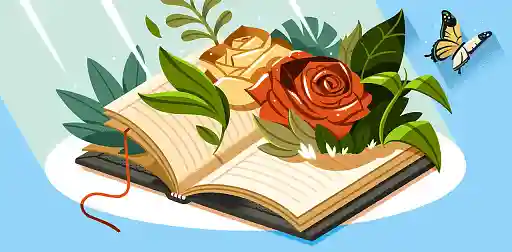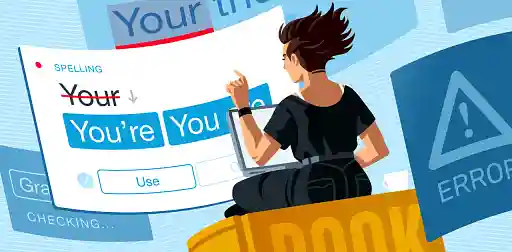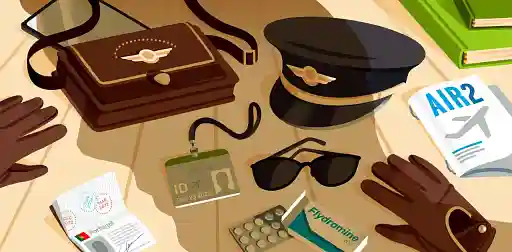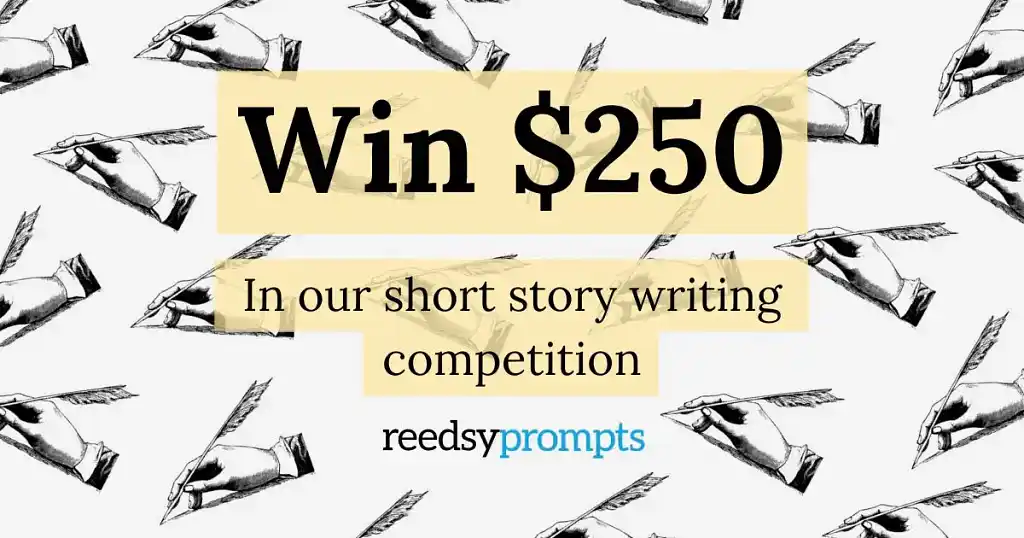Last updated on Oct 15, 2025
How to Become a Better Writer: 20 Hacks and Tips
Martin Cavannagh
Head of Content at Reedsy, Martin has spent over eight years helping writers turn their ambitions into reality. As a voice in the indie publishing space, he has written for a number of outlets and spoken at conferences, including the 2024 Writers Summit at the London Book Fair.
View profile →Practically speaking, writing is just about putting one word after another. But as anyone who’s struggled with the question of how to become a better writer will tell you, there are sometimes entire worlds of frustration compressed in the seconds between setting each word down. If that sounds familiar, or you’re simply trying to improve your craft without the existential writerly despair, we’ve got 20 essential tips to share with you.
In this post, we’ll be sharing writing advice for everyone, but you can head to our more specific guides on starting from scratch, writing novels, nonfiction, and children’s books if that’s what you’re after:
- How to Start Creative Writing: 7 Ways to Fast-Track Your Writing
- Reedsy's guide to novel writing
- How to Write a Nonfiction Book in 6 Steps
- How to Write a Children's Book in 7 Surprisingly Simple Steps
1. Start by spending more time writing
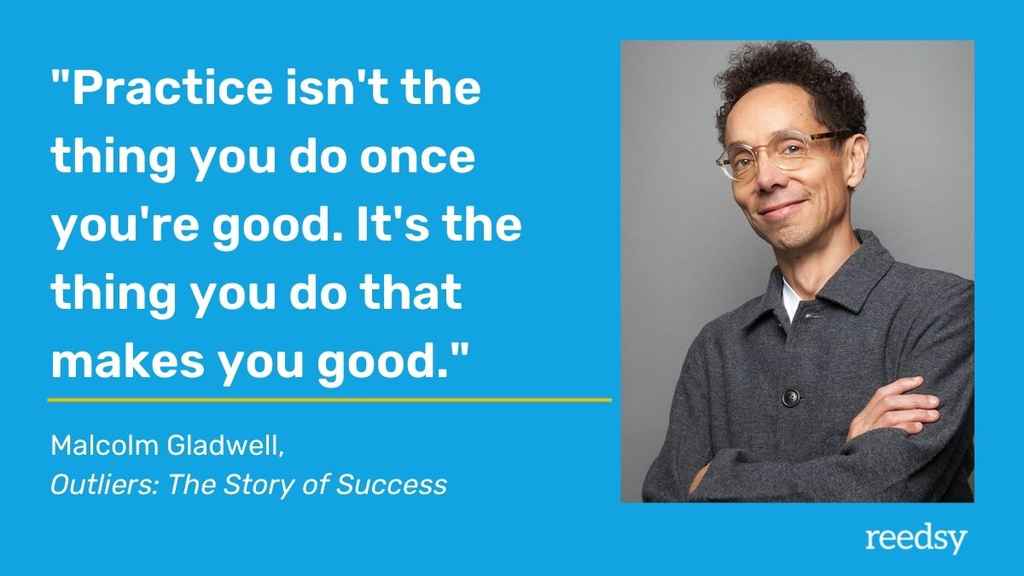 In Outliers, Malcolm Gladwell famously claims that it takes 10,000 hours of practice to achieve greatness in any skill. Even if you only put in two hours more per week than usual, any increase in the time you spend writing will accelerate your improvement. And sure, new vocabulary won’t miraculously descend upon you just because you spent an hour writing poetry (like some kind of video game level-up), but inhabiting the mental space of writing for a while longer comes with some serious benefits:
In Outliers, Malcolm Gladwell famously claims that it takes 10,000 hours of practice to achieve greatness in any skill. Even if you only put in two hours more per week than usual, any increase in the time you spend writing will accelerate your improvement. And sure, new vocabulary won’t miraculously descend upon you just because you spent an hour writing poetry (like some kind of video game level-up), but inhabiting the mental space of writing for a while longer comes with some serious benefits:
- You’ll get to know your own writing habits better, e.g. the time of day when you’re most productive, or the location where you’re most inspired to write;
- You’ll develop writerly discipline (an essential skill if you ever hope to write a book or another long form project); 💪
- You'll work out what you really like to write, whether that's literary fiction or epic fantasy;
- You’ll stick around long enough for new ideas to occur to you (especially helpful if you’re a pantser, not a plotter).
2. Practice reading books by other authors
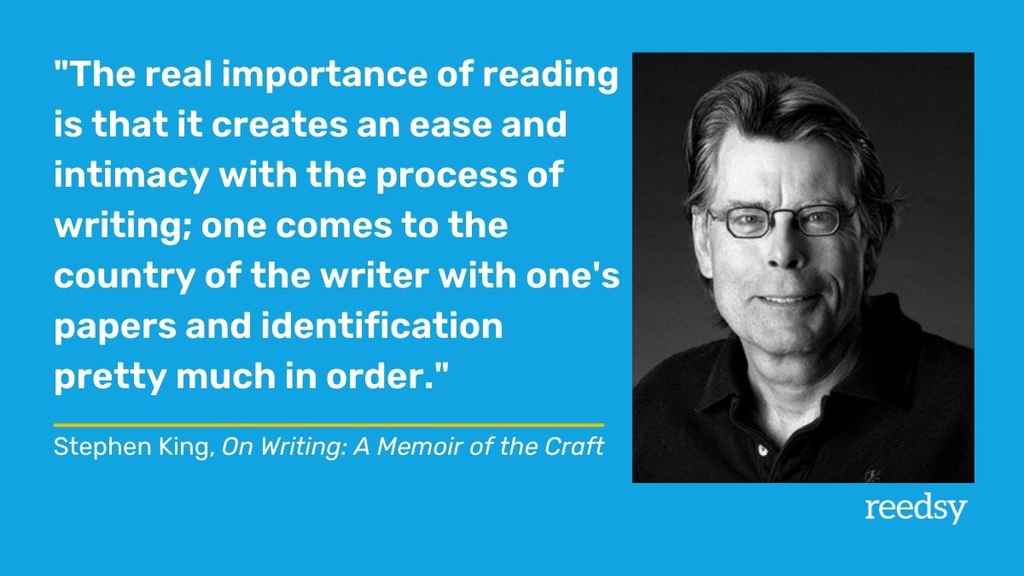 In his widely celebrated memoir, On Writing, Stephen King suggests that “the real importance of reading is that it creates an ease and intimacy with the process of writing; one comes to the country of the writer with one's papers and identification pretty much in order.”
In his widely celebrated memoir, On Writing, Stephen King suggests that “the real importance of reading is that it creates an ease and intimacy with the process of writing; one comes to the country of the writer with one's papers and identification pretty much in order.”
On the level of vocabulary, sentence structure, and rhythm, the “ease and intimacy” King talks about occurs subliminally, beneath the surface of your consciousness, quietly sharpening your perceptive skills. On the level of plot or structure, you actively discover the creative strategies of other writers. Now aware of what others are doing with their words, you become a native to that “country of the writer”.
Ultimately, the more wonderful things you feed your brain, the richer the pool of knowledge your creativity will be able to draw from.
📚 If you need recommendations, we’ve compiled reading lists for every taste here:
- 25 Creative Writing Examples to Inspire You Today
- The 115 Best Books of All Time
- The 60 Best Nonfiction Books of the 21st Century
- The 125 Best Children’s Books of All Time
- The 30 Best Memoirs of the Last Century
- The Best Short Stories and Collections Everyone Should Read
3. Pick up writing skills from other texts
Okay, enough with the subconscious magical learning — you also need to put in serious, active effort. That means taking apart passages that impress or move you and dissecting another writer’s methodology.
This will be most helpful if you focus on texts in your genre or form: read respected newspapers or magazines if you’re hoping to submit to such publications, poetic collections if you long to publish poetry, academic papers by reputable academics if you’re a budding scholar.
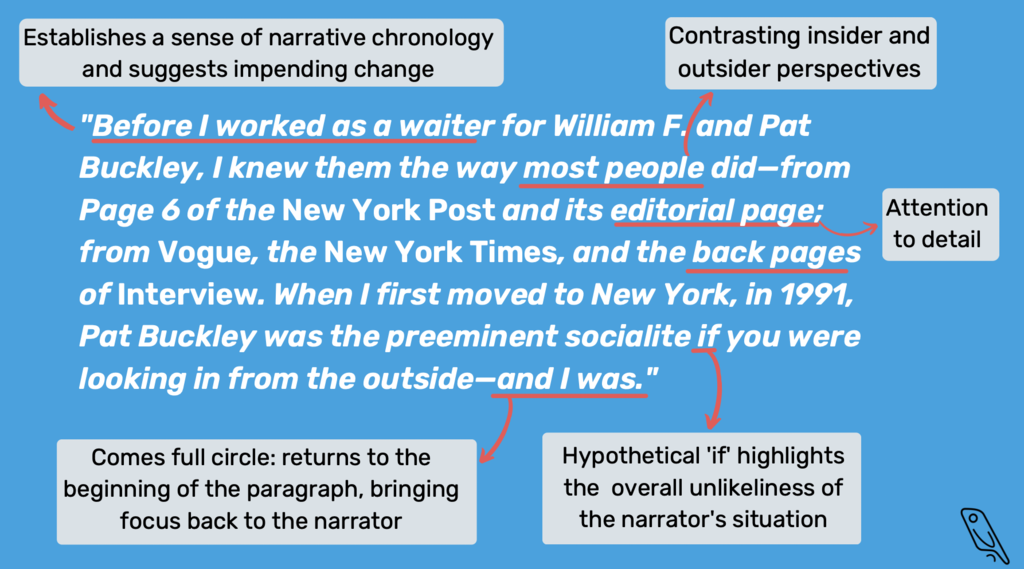
Read each sentence carefully, asking yourself how you would have gone about writing it. Notice the differences between each version: look closely at how the other writer avoids repetition and regulates sentence length, and become aware of all the words that could’ve gone into the sentence, but were trimmed out. If you remember the lessons you draw from this exercise, you’ll be on your way to becoming a better writer.
If you struggle to write consistently, sign up for our How to Write a Novel course to finish a novel in just 3 months.

NEW REEDSY COURSE
How to Write a Novel
Enroll in our course and become an author in three months.
4. Study examples of writing theory
Time for some homework: aside from picking up other writers’ tricks by reading their work, you can also study up on basic writing theories. Learning about structure within stories and the different models that dramatists and fiction writers rely on, like Freytag’s pyramid or the classic structure divided into three acts, is valuable for any aspiring writer. These models are guides to centuries of storytelling tradition: demonstrations of how you might apply a structure onto a story.
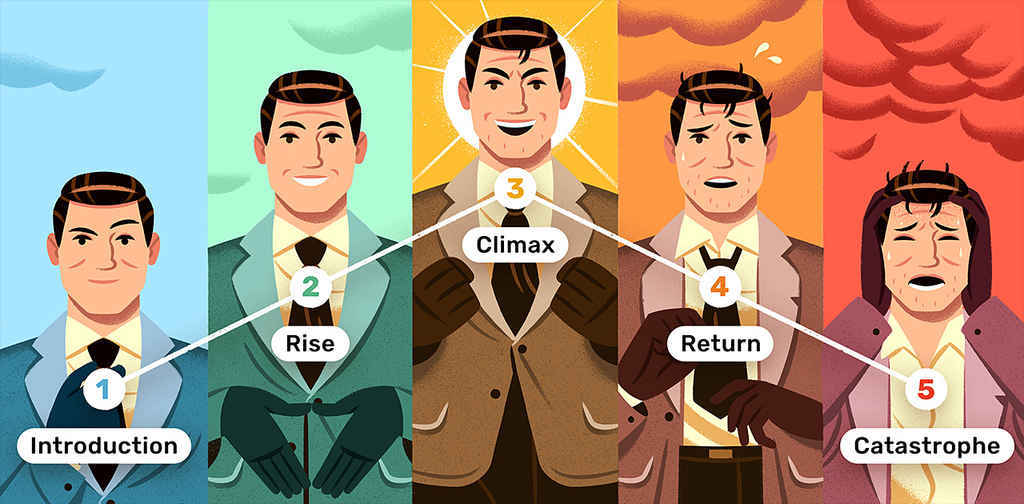
When it comes to expressing yourself, brushing up on your literary and rhetorical devices is also helpful. After all, as much as people like to pretend writing is a mystical art, divinely bestowed upon one by magical inspiration, a lot of it comes down to active effort on the writer’s part.
Head to these guides to literary and rhetorical devices if you’re ready for school:
💡 45+ Literary Devices and Terms Every Writer Should Know
💡 30+ Rhetorical Devices Everyone Must Know
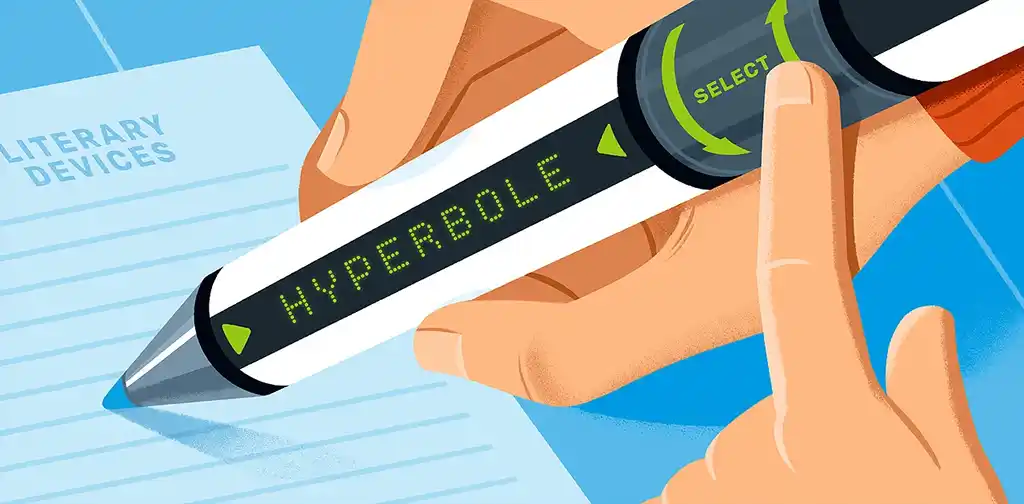
FREE RESOURCE
Literary Devices Cheatsheet
Master these 40+ devices to level up your writing skills.
5. Create your own voice
Some people’s advice for learning improving your writing skills is to stick to templates. These can be wonderful if you’re writing something meant to be plain, like a legal document or a freelance proposal. (If this is the case, all you need to do to become a better writer is be accurate, precise, and grammatically correct.) For everything else, by all means inform yourself about things like story structure, but never adhere to templates to the point where your personality is extinguished.
If you’ve got a sense of humor, interests, opinions, or possess literally any other quality unique to human beings (as opposed to bots), you can channel that personality into your writing, and lift mundane subjects up with the buoyancy of your voice.
💡 Need an example? Check out this post on the best reading chairs written by Savannah, one of Reedsy’s writers. You might not have a passion for chairs, but you’ll stay for the engaging tone of her writing voice.
6. Experiment with your writing style

Hit a plateau? If you don’t feel like you’re improving, it’s time to switch things up. Try writing something completely different to cleanse your palate with the literary equivalent of pickled ginger in a sushi restaurant. Experimentation seems to be working for George R.R. Martin, who has for decades been writing short stories, novellas and even reference books between instalments of his novel series A Song of Ice and Fire — evidently, switching between different forms has helped this author of epic fantasy stay inspired and motivated.
We’ve got over 1,000 creative writing prompts you can browse for inspiration, as well as an interactive plot generator if you need someone to establish plot parameters for you. We know writers struggle to set themselves deadlines, so you could even join our weekly writing contest — we’re happy to provide you with some external pressure, and $250 if you manage to win!
7. Outline your book
Openings and endings don’t just matter in fiction. Inherent in all good writing is story: a narrative with a full-fledged arc that must start and end in places that make sense and add value to the entire text.
Writing students commonly struggle with slow or delayed story openings — where the writer takes too long to clear their throat. They can fill two or three paragraphs, several pages, or even an entire chapter before they get to something interesting.
To sharpen your beginning, try deleting parts of it to get a feel of your work without them. You may find a later passage is more gripping to your reader — you’ll then know you’ve found your true opening.
Endings are similarly crucial. As editor and former publisher Jasmin Kirkbride points out, “Every subplot and all the different strands of your main plot should reach satisfying, clear conclusions. If they are meant to be left ambiguously, ensure your reader knows this, and create something out of that uncertainty.”
🎵
Tell us about your book, and we'll give you a writing playlist
It'll only take a minute!
8. Write with a clear vocabulary
As you edit your work, you’ll be thinking of what you intended to say at the time of writing. For that reason, you’ll need to maintain a level of mental alertness that enables you to evaluate whether or not what you ended up writing actually does convey what you wanted to say. This is particularly important if you’re writing nonfiction.
For this task, grab a cup of coffee and interrogate every sentence: how can you clarify its meaning, and can you do it in fewer words? Often, clarity and conciseness are tied together, so resist the urge to over-explain yourself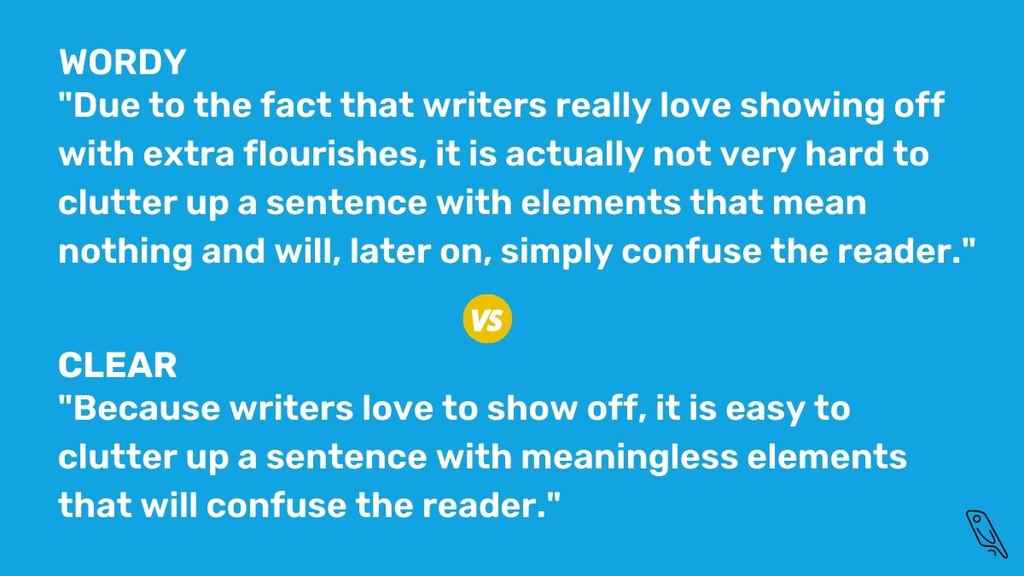
9. Self-edit for errors in your prose
While we’re discussing lazy, unmemorable writing, this is a reminder that fillers are another literary ‘bad habit’ to actively resist. Cluttering up your prose, these short words sneakily crawl into your writing and distract your reader from the essence of your point.
In her free Reedsy course on self-editing, Lisa Lepki identifies the most common words in the English language as the culprits of literary clutter. Lisa advises writers to avoid “meandering around [their sentences’] meaning”, and offers this sentence as a wordy example:
“Andy went over to the far end of the playground to see if there was a rake that he could use to tidy up all of the leaves that had fallen down in the night.”
Lisa offers this distilled alternative:
“Mountains of leaves had fallen overnight, so Andy checked the playground for a rake.”
Sign up to take the rest of this free course here:
Free course: How to self-edit like a pro
Rid your manuscript of the most common writing mistakes with this 10-day online course. Get started now.
10. Cut the repetitive sentences
One practical way to become a better writer is by consciously analyzing your writing to identify repetitive patterns. This is hard to do during the drafting process, especially if you write your first draft quickly, but it’s mercifully simple in retrospect. So dig out some past writing samples (creative nonfiction, poems, short stories — anything will do), grab some coloring pencils or highlighters, and mark every instance of repetitive language.
Study your words on multiple levels:
- The lexical level, i.e. specific verbs, adverbs or adjectives you might be repeating (are your characters constantly grinning?);
- The sentence structure level, like if all your examples come in threes;
- The narrative structure level, like if you unwittingly but consistently lapse into new flashbacks.
The point of this exercise is to identify your personal linguistic reflexes — known in linguistics as your “idiolect”. In terms of language use, it’s your fingerprint, and familiarizing yourself with it can help you identify repetition and edit it out of your writing.
💡 If you want to learn more about idiolects, check out this post by one of Reedsy’s writers.
11. Avoid clichéd language
Clichés are every writer’s stumbling block, ever an uphill battle — though the battle has its ups and its downs, and what matters most is not the destination, but the friends we made along the way. You get our point, hopefully: clichés are lazy, overly familiar, platitudinous, and often boring. Every time you use a cliché, you’re wasting an opportunity to be original and authentic.
Primarily, our issue with clichés is no moral qualm about authenticity. It’s the simple fact that they completely drain your writing of its ability to be memorable. Lifeless, it falls to the ground, faceless and forgotten.
🖊️
Which contemporary author are you?
Find out which of today's greats is your writerly match. Takes one minute!
12. Understand the ideas behind your work
You’ve already taken the first step toward seeing the bigger picture by honing your opening and ending. Now it’s time to look at all the extraneous stuff outside your text: in other words, situate your writing within a wider framework of similar work.
This is particularly important in nonfiction, where it’s crucial to contextualize your claims (or the claims you are describing) by providing similar as well as alternative viewpoints, citing parallel research to posit your work as part of a larger conversation. For example, Alan Lightman prefaces his discussion of theoretical physicist Andrei Linde’s work on infinity by offering readers a glimpse into the approaches of other disciplines on the subject. By providing context, Lightman widens the horizons of his article, giving readers access to the bigger picture.
13. Respect your reader’s attention
Don’t lose sight of the fact that there’s a person on the other end of the line. Be a compassionate writer by imagining yourself as the reader: is that fourth paragraph detailing the history of a secondary character’s nomadic tribe really necessary? It’s certainly great world-building, but if it puts your reader to sleep, it’s got to go.
Similarly, do not manipulate your reader. Pointless plot twists or clickbait will erode your readers’ trust, and hollow hot takes will impress no one. Stick to substance, and skip the paratextual circus act.
14. Get feedback from an editor
Nobody writes flawlessly. Most published writing undergoes significant editing both by its author and professional editors. For example, Raymond Carver’s classic short story collection What We Talk About When We Talk About Love is known to have been extensively shaped by Carver’s editor, Gordon Lish.
No matter what you’re writing, give your work time to cool before stepping back into it with the fresh eyes of an editor. Assess the clarity of your meaning, expressions, overall structure, your tone, and the mood of the piece, and compare these to the vision you had when you were writing.
Any writing intended for publication should also be professionally edited — and lucky for you, you can hire some of the most experienced fiction or nonfiction editors in the publishing world, right here on Reedsy.

Give your book the help it deserves
The best editors are on Reedsy. Sign up for free and meet them.
Learn how Reedsy can help you craft a beautiful book.
15. Be open to constructive criticism

Becoming a writer means releasing your work into the world, and with that comes both praise and criticism. But neither will help you become a better writer if you shut all feedback out. Though some of the criticism you’ll receive may not be helpful, some of it will be, and you’ll struggle to improve your writing if you refuse to see that. Open your heart up to constructive criticism, and you’ll see your writing flourish.
16. Invest in your career with a writing course
While we’re on the topic of learning: there’s plenty of classes and courses you can take, if you’d rather study in a more structured way. If you’re serious about becoming a better writer, whether that’s an author, journalist, ghostwriter, or freelancer, a class can give you access to the wisdom of more experienced professionals — and a real-life class also means meeting mentors and kindred spirits.
You can check out writing courses online — we’ve got a bunch of completely free courses you can take:
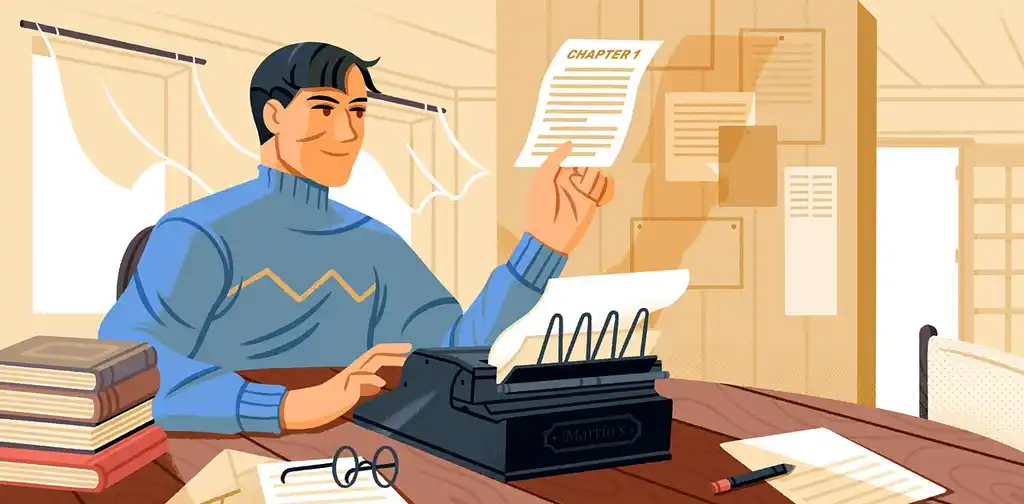
FREE COURSE
How to Write a Novel
Author and ghostwriter Tom Bromley will guide you from page 1 to the finish line.
👩🎓 How to Write a Business Book — taught by business coach Alison Jones
👩🎓 The Non-Sexy Business of Non-Fiction — taught by author coach Azul Terronez
Still hungry? Consider pursuing a writing degree. These aren’t just for people looking for creative writing classes — MFAs also focus on nonfiction, so if that’s what you see yourself writing, there are plenty of options. Only you know which program and school would be the best fit for you, and the Internet will be your friend as you work the answer out.
17. Keep company with other writers
Everything’s better with company. Whether your choice is to join a local writing group, critique circle, or an online Facebook group, having friends who are writers means you’ll have someone to bounce ideas off, someone to support you if you feel insecure about your writing, someone to inspire you to work harder, and someone to offer you advice and opinions about your project. All important aspects of improving your skills! ✊
18. Write content consistently
Writing takes a lot of determination and discipline, especially when you’re working on a longer work like a book or a series. Sometimes things won’t work out, and you’ll be frustrated, impatient, demotivated, and temporarily hopeless. All of this is fine, and an entirely normal part of the process. When you get to this stage, be gentle with yourself, but do not give up.
Writers are often the most stubborn of people: so go ahead and keep writing in spite of yourself, in spite of your insecurities or personal failures, and in spite of what anyone else might think. If that doesn’t earn you the ‘badge’ of a writer, we don’t know what does.
19. Don’t give up on your words
Your ideas will be exciting, but they won’t always be masterpieces. Some you can fix with a zealous edit. Others, not so much. Accept this as a reality and let them float down the river of oblivion.
We know this sounds contradictory to our last bit of advice, but trust your intuition to decide whether it’s worth persevering with a particular project. For example, there’s no point in trying to resurrect the passion you had for a project you started long ago, if the inspiration has long since left you. There is also little point in pursuing something you began simply because you felt it was what you were supposed to be writing. If it doesn’t speak to you anymore and you see no way to revive the spark, cut your losses and move on.
20. Embrace failure to become a better writer
Finally, just as you’ll have to handle criticism, you’ll also undoubtedly face rejection and failure. Whether you’re rejected by literary agents, fail to get a publishing deal, or have your stories, pitches, or poems rejected by literary publications, you must remember that failure is an inescapable and inevitable fact of life, and does not determine your worth as a writer.
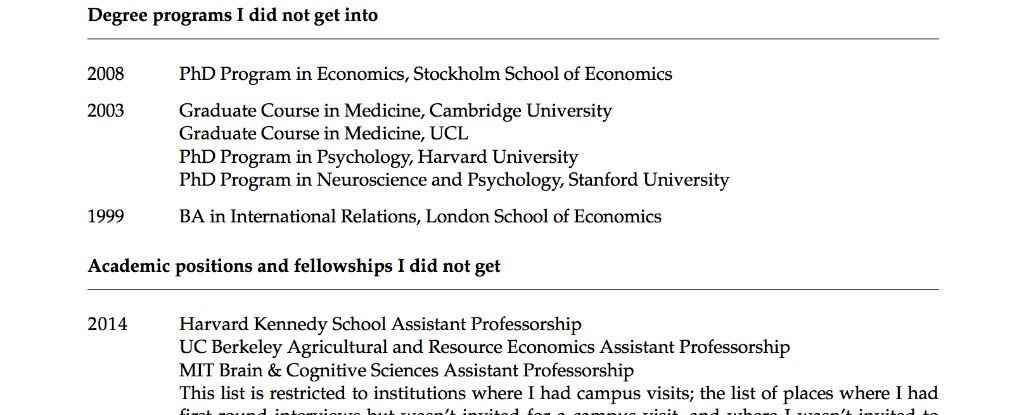
Be assured that others fail, too, even if they only fail in private. One of our favorite reminders of how common failure is is the famous CV of failures published by Princeton professor Johannes Haushofer, where he lists every program, award, and position he was rejected from, as a reminder that everyone experiences failure. And if you need a writer-specific example of success despite failure, remember that Douglas Stuart’s novel Shuggie Bain, winner of the 2020 Booker Prize, was rejected 32 times before it received a publisher’s offer.
You don’t need anybody to officially ordain you as a writer — you’re a writer if you believe you’re a writer and write anyway.
We hope these tips help you figure out how to become a better writer. Your quest is noble, and we believe in you!




